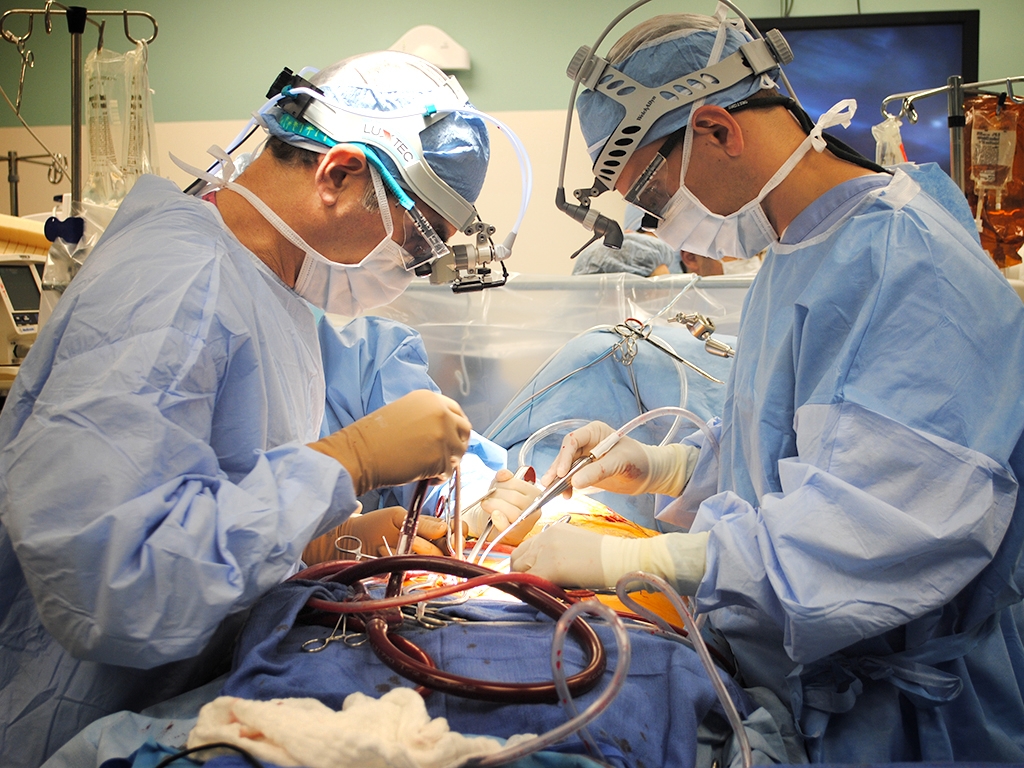The summer of 2015 was a scary time for our family. My husband went for a stress test, failed it within the first minute and was taken immediately to the hospital for very serious heart surgery.
What a shock for our whole family! All I could think of, besides “Oh, the poor guy!” was, ‘What if he suffers a lot? What if I lose my life partner? What if my fairly young adult children have to grieve for their father?” And practical things crowded in such as “Do I know how to pay the bills and look after the house while he’s in hospital or if he passes away? What will I do without him to help me think things through in life?” And, on an immediate level, “With so much of my time taken up on out-of-town hospital trips, do I have enough food basics in the house like coffee, bread, sandwich meat, muffins, milk and a casserole for daily dinnertimes? And a big question, “WHAT IF ALL OF THIS IS TOO MUCH TO HANDLE and it overwhelms me?”
 For three weeks, as he struggled to recover from the surgery and a couple of serious medical setbacks occurred, I remained in a state of anxiety. I got everything done perfectly that needed doing but I was on high alert, in fear for him, for myself and for our family. Questions kept flooding to the surface. “What if I’ve done or said things that I regret? Have I always been kind to him and if not, will I get the chance to make things right? How will I comfort and reassure my husband who is scared, counsel my kids and at the same time, and care for my own emotional wellbeing?”
For three weeks, as he struggled to recover from the surgery and a couple of serious medical setbacks occurred, I remained in a state of anxiety. I got everything done perfectly that needed doing but I was on high alert, in fear for him, for myself and for our family. Questions kept flooding to the surface. “What if I’ve done or said things that I regret? Have I always been kind to him and if not, will I get the chance to make things right? How will I comfort and reassure my husband who is scared, counsel my kids and at the same time, and care for my own emotional wellbeing?”
Needless to say, sleep did not come to me easily and some days didn’t arrive at all. Not one tear fell onto my face―I just couldn’t find the time or the ability to shed them. People told me to be sure and take care of myself, but I didn’t know what that actually meant. All I could do was manage the moment; caring for myself would have to come later.
Helpers arrived at my side, like angels from God, joining in the daily travel to the hospital, grocery shopping, meals, praying with me, visits to the house and daily email and FB messages. I felt the physical arms and hands of Jesus himself, ready to support and comfort me as I stumbled through those first few weeks. But when everyone was gone at the end of the day, and I was in my room, the fears returned. I couldn’t stop my mind from spinning with worry and dread. “What was going to happen? How could life be so ordinary until this point and now be turned upside down?” Serious spiritual questions arose. “Do I really trust God with absolutely anything that comes my way? Is this the big moment of truth for my faith?”
Keep your mind from rushing to the worst possible outcome. Share on XThankfully, wise words from friends and family continued to pour in. “You and your husband are in the capable hands of God. Keep your mind from rushing to the worst possible outcome. You don’t have to be brave and strong all the time. Lean on others including church friends who show the radical love of Christ. You have a Saviour who knows and loves your family―trust Him and stay very close to Him!” And finally, “Focus your mind on things other than illness― positive, happy and uplifting things.” Just like it says in the Bible verse song I memorized as a young Sunday school child:
“Whatsoever things are worthy, whatsoever things are true,
Whatsoever things are noble, let your thoughts these things pursue.
Whatsoever things are lovely, whatsoever things are pure,
And if there be praise or virtue, think on these things – they endure.” (Phillipians 4:8).
Life slowly settled down as my husband recovered and our family started to breathe, shed some tears and sleep again. When I look back, I see how God worked through doctors and hospital staff, my husband’s strong and cooperative spirit, friends and family support in crisis, positive thoughts, God’s healing power……and prayer.
 There is so much more of life to be enjoyed. What a lovely thought!
There is so much more of life to be enjoyed. What a lovely thought!




